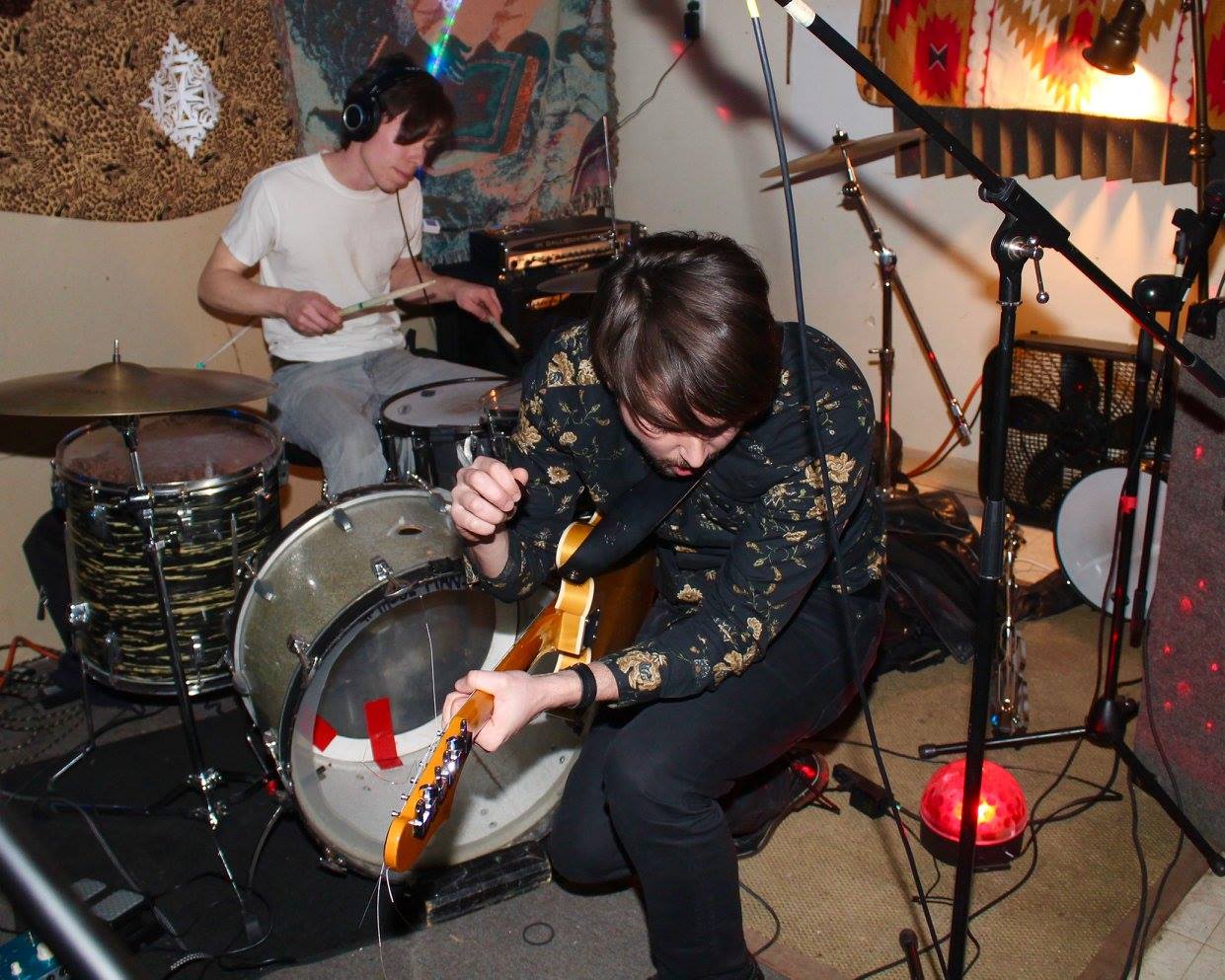Just southwest of the campus, scarcely a noise can be heard over the rushing sound of Saturday night traffic on Adelphi Road. Even so, the thump and roar of a band blares from stacks of speakers inside a garage lined with lights, tapestries and soundproofing.
On another night, to the northeast, an otherwise quiet neighborhood sleeps above a basement filled with the soft humming of vocals and acoustic guitar.
These gatherings, thrown by and for students, are equal parts concert and house party, attracting dense crowds in a town with a marked lack of official music venues.
Instead, houses rented by students serve as do-it-yourself venues, supplying the necessary equipment and audience to plan shows for local and touring bands about once a month.
Living at The Void in Hyattsville is Asher Meerovich, a senior philosophy major who has helped run shows at this shared residence since September. To host a DIY show, he says, booking the bands comes first.
“We’ll build a show around a touring band that we want to host,” Meerovich said, “and we’ll get locals to fill out the bill.”
Marina Peterson, a junior environmental science and policy major helping run Ghost Office in Berwyn Heights, described a similar manner of arranging shows, which enables bands to connect and collaborate.
“There’s the so-called ‘show trade’ that people do a lot,” said Andre Vasconcelos, a 28-year-old Brazilian-born guitarist and backing vocalist for Rann, a New York City-based indie band.
College Park-based act The Radiographers contacted Vasconcelos, and each exchanged tour dates in their respective hometowns at venues with which they are connected, eventually providing Rann the opportunity to play alongside The Radiographers at The Void late this past February.
If there’s an on-campus connection to the DIY shows, it’s WMUC. The student-run radio station has collaborated with house venues in the past to get bands, like those playing in their weekly Third Rail shows, into College Park neighborhoods as well as on the airwaves, said Chris Bugtong, junior computer science and film studies major and general manager of WMUC.
“It’s not, per se, an official kind of relationship,” Bugtong said. “People in [WMUC’s] community are very active in that scene, and we hope to foster that.”
Bugtong thinks of DIY shows as “the crucibles of making something great,” referring to the shows’ functions as a platform for up-and-coming bands to reach a wider audience, while one probably wouldn’t see them “on the main stage.”
“It’s nice to watch musicians develop,” said Ron Akins, who has been photographing shows in Washington, Maryland and Virginia for the past “10 to seven years,” with a preference for those that are independently run.
“I don’t go downtown and do DC9 and the clubs much,” Akins said. “Parking is a pain and venues are just a little too big for what I do.”
Many official venues take issue with flash photography, he added.
Tommy Piantone, a sophomore business student who hopes to start a DIY venue in the near future, cited the “smaller, more cozy atmosphere” as an element that is otherwise lacking in official venues he has visited.
The atmosphere is indeed cozy, at times to the point of uncomfortably snug. While both Meerovich and Peterson expressed pride in the amount of room they are able to offer, Piantone and Bugtong agreed well-attended shows impose a constraint on space.
College Park housing can only provide so much, but the space available does allow a decidedly cheaper nightlife alternative to what the city currently offers for students.
“There is something very intimate and appealing to me, and I think to many others, about going to someone’s house where you’ve broken down the barriers a lot between the artist and the audience,” Meerovich said. “People like to feel like they’re a part of something and not just paying for something.”



